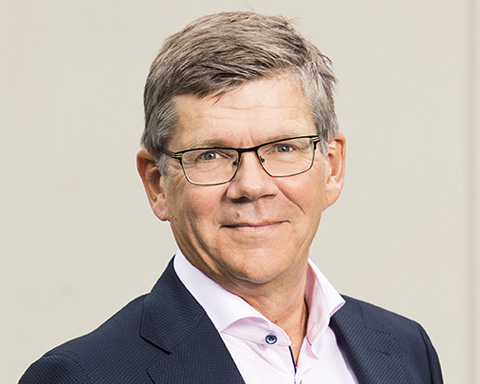Det er fordi Institutt for statsvitenskap er vertskap for Europas st?rste statsvitenskapskonferanse “European Consortium for Political Research - General Conference”. Konferansen har om lag 2 000 deltakere.
Statsvitenskap ved UiO feirer 60 ?r i ?r. P? relativt kort tid har v?rt institutt bygget seg opp til ? bli et av de mest anerkjente statsvitenskapsmilj?ene i verden. Gratulerer til instituttet med jubileet, med den utmerkede faglige kvaliteten og med en vellykket konferanse!
I g?r, torsdag, var jeg s? heldig ? f? ?nske velkommen til et foredrag av selveste professor emeritus Johan P. Olsen, en av UiOs nestorer innen faget. Det var en ?re ? f? m?te en av v?re fremste statsvitere, som har satt preg p? faget ogs? internasjonalt. I disse valgtider er hans forskning om tillit og politiske institusjoner s?rdeles relevant.

Her er talen jeg holdt f?r Johan P. Olsens glitrende foredrag.
Dear colleagues,
Welcome to the University of Oslo, to the University Aula and to the General Assembly of the European Consortium for Political Research!
We are thrilled to have you here, and we thank you for choosing Oslo as your destination for this event – the largest conference for political science in Europe. I hope your stay here has so far proved the executive committee made a wise choice.
Man is by nature a political animal, said Aristotle. This certainly came to mind when I reviewed the program for your conference. I know you have already spent the day together at Blindern campus – discussing topics I would have followed with great interest myself as well: Political science in the era of Trump, a debate on Brexit, a discussion on the future of European welfare states. How I wish I could have partaken!
As a professor of chemistry my formal training in political science is limited. Still relevant topics are off course frequently discussed in our newly elected rectorate - we took office some few weeks back - on August 1st.
This is in part due to the fact that professor of political science ?se Gornitzka is vice rector for research and internationalization. But also because institutions and the relationship between institutions is key to develop the university and our society further.
I believe that the university is one of the key societal institutions needed to ensure safe and sound road to the future. And why is that?
Well – to address the great challenges of our time – climate, migration, conflict, energy – we need sound and sustainable institutions, both to develop the policies for the future and to put them into practice.
To succeed in the development of these institutions, we must understand the system in which we work. We must develop an understanding of the values on which our institutions are built, and their instrumental role. We need good institutions for good lives. This is where the university can play a vital role.
Because knowledge helps us understand social and cultural change. Knowledge helps build trust in a society and between people and public administration and institutions.
Well-functioning institutions which meet people with respect make us trust each other and enable us to live with conflicts – a point well made by today’s outstanding lecturer; Johan P. Olsen.
How we organize our society is of great significance to our ability to solve societal problems. The solutions must be based upon knowledge, and they must be administered by reliable institutions of high ethical standards.
Political science as an independent academic discipline is quite young here in Norway. This year, we celebrate 70 years existence of the discipline nationally, and our own Department of political science’s 60th birthday. In a relatively short time the department has gained a high standing internationally, and is ranked among the best in Europe.
In this Plenary Lecture we will meet one of the great scholars who made this possible. Professor emeritus Johan P. Olsen has been a role model for many, and a driving force in building a first class academic environment. Our research Centre ARENA - Advanced Research on the Europeanization of the Nation State - was established under his leadership and the outstanding research undertaken there has grown under his wise leadership as research director. He will be properly introduced later, but I wish to extend a heartfelt thank you to him on behalf of the University of Oslo.
I would like to thank the executive committee and the organizers from the University of Oslo. I wish you all a fruitful conference, lively debates and new insights. I look forward to spending this evening with you!




